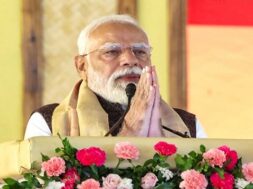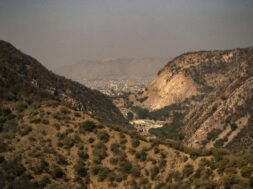Virendra Pandit
New Delhi: While the Islamic Ummah (International Muslim Brotherhood) is facing an existential crisis and fast getting divided into Arab versus non-Arab camps, leading African nation Sudan has announced to shun the Shariah law and turn ‘secular’.
Interestingly, Sudan is likely to get Arab support as well, lest it turns towards the ‘neo-Islamic’ non-Arab camp being aggregated by Turkey, which has set out in motion several steps to snatch the Muslim leadership from Saudi Arabia.
As part of this strategy, Ankara recently reversed the status of UNESCO-designated world heritage monument Hagia Sophia in Istanbul, back into a mosque so as to whip up a religious frenzy. The monument, built as a church in 537 AD, had been a mosque since 1453 before it was declared a museum in 1931.
Last week, Sudan’s transitional government approved the separation of religion from the state, ending 30 years of Islamic rule in the North African nation.
Islam is the largest religion in the African nation where Muslims have dominated government institutions since independence in 1956. According to the World Bank, Muslims comprise nearly 97 percent of 42 million Sudanese, the remaining three percent being Christians or native animistic faithful.
Recently, Sudanese Prime Minister Abdalla Hamdok and Abdel-Aziz al-Hilu, a leader of the Sudan People’s Liberation Movement-North rebel group, signed a declaration in the Ethiopian capital, Addis Ababa, on adopting secularism, media reports said.
Sudan remained isolated internationally after its dictator Colonel Omar al-Bashir seized power in 1989 and implemented a hard-line interpretation of Islamic law seeking to make his country the “vanguard of the Islamic world.” Several terrorists groups and militants, including Al-Qaeda and Carlos the Jackal, found a safe refuge and settled there.
The U.S. had designated Sudan a terror-sponsor in 1993 and imposed sanctions that lasted until 2017.
lasted until 2017.
Until a few years ago, the largest African country passed through decades-long turmoil, civil war, rebellions, partition, and other disturbances which lasted when al-Bashir was ousted in 2019.
With this, Sudan is likely to deny safe haven to Islamic terrorists, at a time when the Muslim world itself is facing division between the Arab and non-Arab nations.
In what is seen as a paradigm shift in current global politics, the Arabs, led by the Saudis and the UAE, are getting closer to Israel and the West, while the non-Arabs—Turkey, Pakistan, Malaysia, Iran—are cozying up to China and Russia. Israel has been the Muslims’ arch-rival for 14 centuries.
Saudi Arabia leads the 57-member Organization for Islamic Cooperation (OIC), with its headquarters at Jeddah. Due to their oil wealth and by virtue of being the Custodian of the Holy Shrines at Mecca and Medina, the Saudis enjoy enormous influence in the Muslim world. After the Arabs’ improved relations with India, the Saudis have refused to pull Pakistan’s chestnuts out of the fire.
Last year, Turkey, Pakistan, and Malaysia tried to float a non-Arab Muslim front at Kuala Lumpur but failed miserably when the Saudis tightened screws on a bankrupt Islamabad and other client countries. A few weeks ago, Pakistan Foreign Minister Shah Mehmood Qureshi tried to arm-twist the Saudis to support Islamabad on the Kashmir issue. This again forced the Saudis to call Pakistan’s bluff by downsizing aid.
The Saudis are apprehensive about Turkey’s attempts to re-create the Ottoman Empire a hundred years after its demise and snatch the Muslims’ leadership via a ‘rebirth’ of the Caliphate at Ankara. In fact, the Arab Sheikhdoms in the Middle East fear that Turkey could topple them all and merge their oil-rich states back with the neo-Ottoman Empire President Recep Tayyip Erdogan is dreaming of to become the next Caliph-cum-Sultan.















